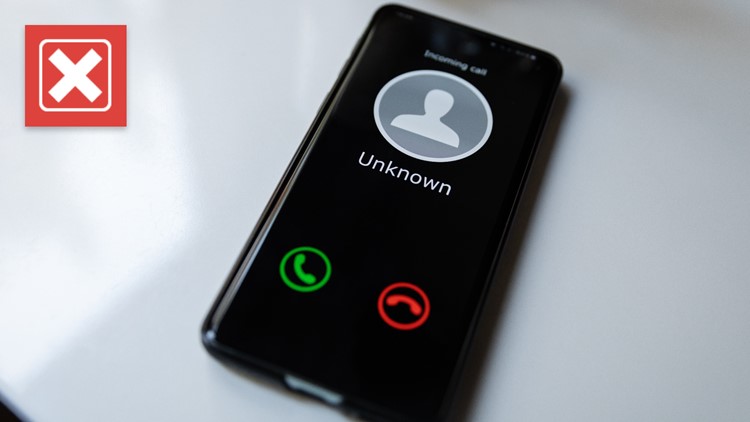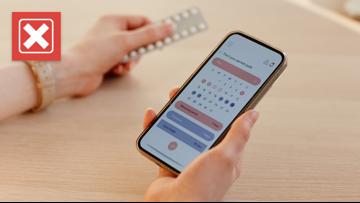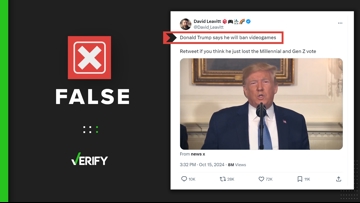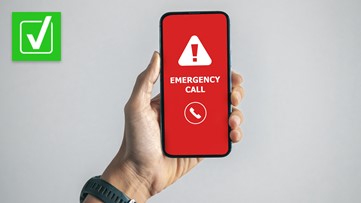The federal government created the Do Not Call Registry nearly 20 years ago to give consumers protection from telemarketing calls, and later, robocalls. But despite the goals of the registry, American consumers frequently report unwanted spam calls and text messages.
VERIFY reader Ginia reached out to the VERIFY team to get some answers about a recent telemarketing call they received. Despite being on the Do Not Call Registry, Ginia said, “ADT called and told me that just by answering my phone I reinstate myself on their database list. Is that true?”
THE QUESTION
Does answering a phone call from a telemarketer take you off the Do Not Call Registry?
THE SOURCES
ADT
THE ANSWER
No, a company cannot legally remove a person from the Do Not Call Registry because the person answered the phone.
WHAT WE FOUND
The Federal Trade Commission (FTC) operates the Do Not Call Registry, a database of consumers who have requested that telemarketers — both live callers and automatic robocalling systems — not contact them. There were over 244 million active DNC registrations in fiscal year 2021. The FTC says it takes up to 31 days after registering for sales calls to stop, but calls that are purely informational or surveys are okay.
The major exception to this rule is if a company has an “established business relationship” with the consumer. The FTC says a company can call a customer with whom they have an established business relationship for up to 18 months after a consumer’s last purchase, delivery or payment, and up to three months after a consumer makes an inquiry or submits an application to a company.
“Simply picking up the phone does not qualify as an ‘established business relationship’ under the DNC rules,” an FTC spokesperson told VERIFY in an email.
RELATED: Yes, it's cheaper to leave your air conditioner on all day than to turn it off when you're gone
Additionally, if a person asks a company not to call them again for sales, the company must honor that request. This is true even if the company has an established business relationship with the consumer or the person isn’t on the Do Not Call Registry.
These rules apply to both in-state and out-of-state calls, the Federal Communications Commission (FCC) says.
So a person on the Do Not Call Registry shouldn’t get a sales call from a legitimate business. And even if they do get such a call, answering doesn’t establish a business relationship with the company that would allow the company to make future calls.
A company can’t feign ignorance of the Do Not Call list, either. The FTC states that a company must pay for access to the Do Not Call Registry for each area code it operates in as a telemarketer, and it’s against the law for a seller to call a number, even a number that hasn’t registered for Do Not Call, that’s in an area code in which the company hasn’t purchased the list.
VERIFY also reached out to ADT, the company Ginia said called them. In a statement, ADT said its policy is to “fully comply with all U.S. federal and state laws and regulations governing telephone sales, marketing, and telemarketing activities.”
“ADT maintains an internal Do Not Call list and purchases all required U.S. federal and state lists. ADT also uses sophisticated proprietary technology to help ensure that consumers who have placed their telephone numbers on such lists are not contacted by ADT or by any of its authorized dealers or authorized marketers,” the statement read.
The FTC admits the Do Not Call Registry can’t stop calls from scammers. “If someone is already breaking the law calling you, there’s a good chance it’s a scam,” the FTC says of telemarketers who ignore the registry. “At the very least, it’s a company you don’t want to do business with.”
Scammers can and do pose as legitimate companies over the phone. The FTC says scammers can do something called “spoofing” to make any name or number show up on caller ID. They can then pretend to be that legitimate company once you’ve picked up the phone — a tactic called an “imposter scam.” The FTC said its number one Do Not Call Registry complaint in fiscal year 2021 was about imposter scams.
The FTC encourages consumers to report unwanted robocalls or violations of the Do Not Call Registry to the donotcall.gov website.
More from VERIFY: Have you received a text from a wrong number? It could be a scam













